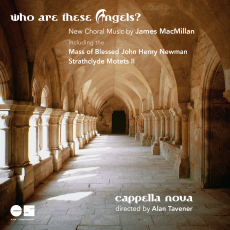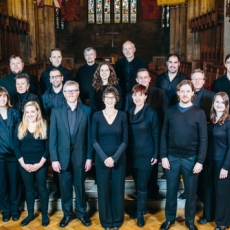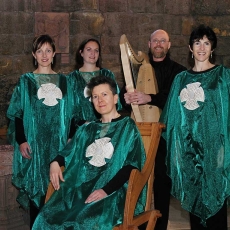Cappella Nova - Who are these Angels? - allmusic.com
The small-scale choral genre often elicits some of Scots composer James MacMillan's most inspired and appealing works. This collection by the ensemble Cappella Nova, led by Alan Tavener and joined by the women's quartet Canty, the Edinburgh Quartet, medieval harpist William Taylor, and organist John Kitchen
features pieces (except for one early work) written between 2007 and
2010. The album includes the seven pieces that make up the composer's
second set of Strathclyde motets as well as individual anthems,
antiphons, and motets, some a cappella and some accompanied. Among the
most appealing are Qui meditabitur, whose eccentric but persuasive
choral ornamentation makes it immediately memorable and distinctive; O
Radiant Dawn, which has the chaste purity and clarity of English
Renaissance polyphony; Os mutorum, which ends in the unfurling of a
train of seductively sensual "Alleluia"s; and the luminous, serene Bring
us, O Lord.
MacMillan wrote his Mass of Blessed by John Henry Newman in English for liturgical use by congregations. The constraints of practicality and simplicity don't seem to call forth MacMillan's
most creative thinking. The Mass is adequate and interesting overall,
but it isn't likely to fill the need for a melodically memorable,
singable mass setting in English. The Kyrie, the most striking movement,
quotes the motive from Tristan und Isolde associated with Tristan's
suffering with startling audacity. It's musically effective, but it
might be a jarring association for anyone familiar with its source. Cappella Nova
sings with precision and with sweet, pure tone. The ambiance varies
some between tracks (depending on whether or not the organ is involved),
but the sound is always clear and warmly present.


